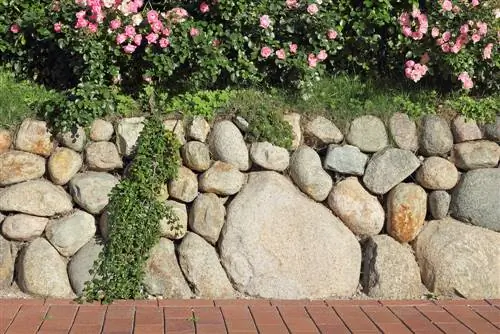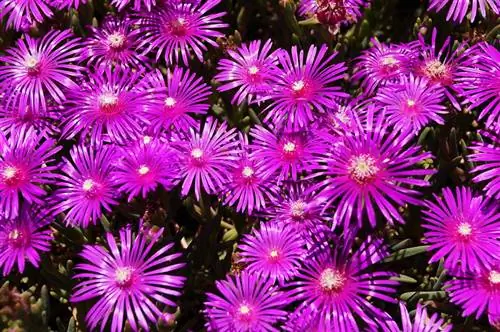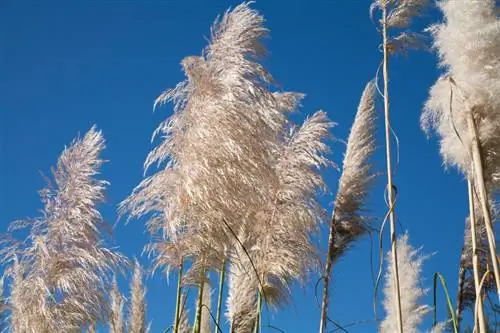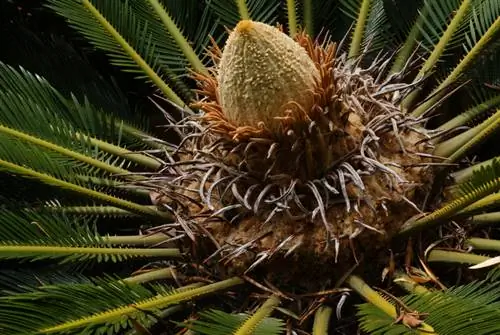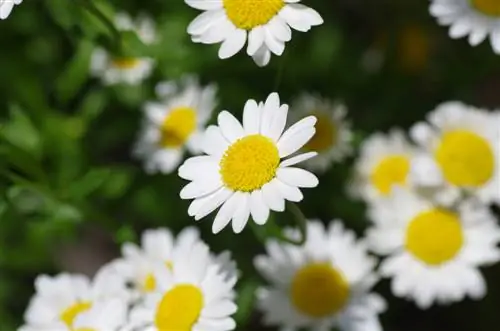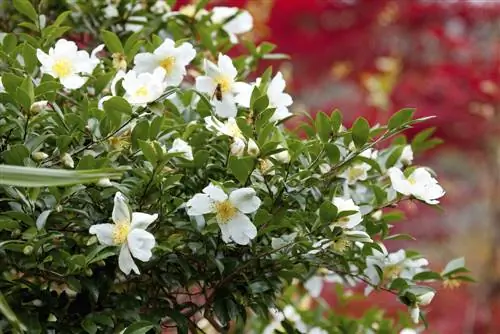- Author admin [email protected].
- Public 2024-01-07 16:36.
- Last modified 2025-01-23 11:21.
A Frisian wall is a popular garden element, especially when it is beautifully planted. You can live out your imagination relatively freely, but there are a few plants that are better suited to planting the Friesenwall than others. Find out below what these are and what needs to be taken into account when caring for them.
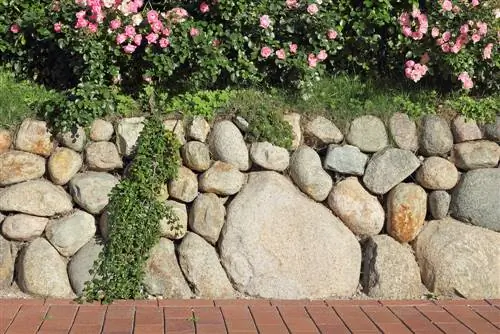
Which plants are suitable for a Frisian wall?
Drought-tolerant, sun-loving plants such as lavender, rosemary, grasses or perennials with a long flowering period are suitable for planting a Friesian wall. Pay attention to perenniality and winter hardiness to ensure long-lasting beauty.
Planting plants on the Friesenwall
On a Frisian wall there is usually increased dryness combined with more sun. Therefore, drought-tolerant plants such as Mediterranean plants such as lavender or Mediterranean herbs such as rosemary are particularly suitable for planting the Friesenwall. Grasses also look good on the stone wall. If you want to have a flowering Friesian wall throughout, you should choose perennials or flowers with a long blooming period or cleverly combine those that bloom at different times. If you don't want to replant your Friesenwall every year, you should also pay attention to perenniality and winter hardiness. Below is a list of the most beautiful drought-tolerant and sun-loving plants for the Friesenwall with their flowering times and winter hardiness.
| Name | Botanical name | Flower color | Flowering time | hardy |
|---|---|---|---|---|
| Affodill | Asphodelus albus | White with brown | May to July | Good |
| Bluestarbush | Amsonia orientalis | Violet bluish | June to August | Good |
| Chinese leadwort | Ceratostigma plumbaginoides | Violet | August to October | Good |
| Three-flowered carnation root | Geum triflorum | Reddish-white | May to August | Extremely hardy |
| Dyer pod, indigo lupine | Baptisia | Violet | May to June | Very good |
| Common Adderhead | Echium vulgare | Violet | June to September | Extremely hardy |
| Spice bark | Cassia hebecarpa | Yellow | August to September | Very good |
| Goldhair Aster | Aster linosyris | Golden Yellow | August to October | Good |
| Grass Lily | Anthericum | White | In summer, depending on variety | Good |
| Junker lily | Asphodeline lutea | Yellow | May to June | Good |
| cockade flower | Gaillardia x grandiflora | variety dependent | July to September | Good |
| Laurel-leaved cistus | Cistus laurifolius | White | June to August | Yes, but in need of protection |
| Magnificent candle | Gaura lindheimeri | variety dependent | July to October | Medium, vulnerable |
| Roman wormwood | Artemisia pontica | Yellowish | August to October | Very good |
| Sand Carnation | Dianthus arenarius | White | July to September | Extremely hardy |
| Steppe Spurge | Euphorbia seguieriana ssp. niciciana | Yellow | June to October | Very good |
| Shrub Strawflower | Helichrysum italicum | Yellow | July to September | Medium, vulnerable |
| Spurflower | Centranthus ruber | variety dependent | June to September | Good |
| Wild Aster | Aster ageratoides | Pink | August to October | Yes |
Planting the joints
A few plants are also good between the joints: they look pretty and strengthen the wall. For example, common lawn or stonecrop, hornwort or other sun-loving ground cover are suitable for this.
Bare earth is dry earth: ground cover and mulch
Exposed soil dries out quickly and provides a perfect location for weeds. It is therefore advisable to cover any exposed soil on the Friesenwall. You can do this with bark mulch, sawdust, nut shells or another mulchable material, or you can underplant your trees and perennials with attractive ground cover such as the carpet bellflower

